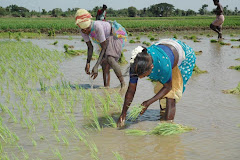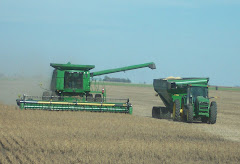* The Admissions to the program are done by means of a written Entrance test followed by an interview.
* The Entrance Test for the Admission to the Masters level PG programs will be conducted on the all India basis
o Entrance test for M.Sc. (ICT ARD) will be conducted at three (3) centers:
o Gandhinagar,
o Delhi
o Hyderabad.
* The result of the entrance test of M Sc (ICT -ARD) will be announced at this website by second week of June 2009.
For further queries visit Click Here
Thursday, March 19, 2009
Applications are invited from eligible candidates For MSc ICT ARD, DA-IICT
Posted by binoy menon at 1:11 PM 0 comments
Saturday, November 29, 2008
ICT4RD - NIRD Project
Dear friends ,
NIRD also playing with the project of ICT4RD , Please go through link
http://www.ict4rd.net.in/categories.aspx?cat_id=1
Posted by Yogiraj Shete at 9:59 PM
Wednesday, November 19, 2008
ICTs in Low Income Countries
Telecommunication Services for Rural Areas
Whereas the urban centers of many countries of South quickly develop ther telecommunication infrastructure and improve their access to the Internet rapidly , Rural areas even lack the most basic telecommunication services . Thus a growing knowledge gap separates the information rich from the information poor and eventually fosters already existing trends of polarization on the sub national level .
One reason for winding of the information Gap lies in the higher demand and higher returns on investment in the major cities which are the first to be the infrastructural
means.
Therefore, we argue that one main focus of a sustainable (telecommunication sector ) development should be the integration of the numerous rural towns and their hinterlands into a telecommunication strategy . Within this context, however, it is crucial to identify the impacts that may be induced by the utilization of telecommunication services on households, micro enterprise and institutions in rural areas .
The assessment of consumer surpluses indicate the high potential of the technologies to increase the households, and firms income . The mechanisms, however , though which these improvements of income and welfare operate are not yet clear but ought to be based on the time and space-bridging character of any form of telecommunication technology .
Adopting this rural households leads to the examination of the process of information gathering and the extends to which this process could be improved by the access to telecommunication .
This improvement could take place indirectly and directly .
As a direct effect , households in rural areas are likely to reduce transaction costs by substituting costly physical traveling on the hand and by saving times on the other hand . Further more, they might be able to expand their markets (factor markets or product markets ). This expansion would not be possible without access to telecommunication and is hence a complement to traditional information sources.
As an indirect impact, institutions that provide the backbone of information supply in rural areas could enhance their efficiency through the use of telecommunication and consult their clients more effectively .
The future chellenge is to apply the outlined framwork on households micro-enterprise
in rural areas in different developing countries . The findings of such an assessment might finally be a constructive contribution to develop a methodological framework
that estimates the economic returns on investment on telecommunication facilities in rural areas . This might eventually lead to strategies to also contact those communities that will -in the short run -not generate as high returns areas.
(SOURCE: "BOOK": Role and Potential of IT Systems and Communication Networks for International Development )
Posted by komal saini at 6:55 PM 1 comments
Need of IT Agrarians in Commodity market:
Indian agribusiness sector is characterized by lack of adequate, reliable, timely information and analysis on various aspects of business such as latest price & trend at major national and international market, demand and supply pattern, scientific forecasting, crop & weather information and its impact on agribusiness sector.
So During the last few years, several innovative applications have emerged around the world that promises to bridge the proverbial “Digital divide.” The e-choupal project in
Other examples include online cooperatives of trades people in South America to directly sell products to end consumers (Anonymous 2000), trading Web sites for cattle ranchers in the
However, two factors make this an important and fruitful research area. First, while such initiatives have the potential to affect the lives of billions of people that live on the other side of the digital divide, their effectiveness is often unclear, and many are skeptical that the benefits actually reach the rural communities (Anonymous 2005). Second, several unanswered research questions arise in this context that are important for policy formulation, such as the nature and magnitude of the benefits from online platforms, who appropriates the benefits, types of products that are suitable, and other factors that affect the benefits obtained.
Posted by Kulkiran kulhari at 5:52 PM 1 comments
Labels: ICT FOR AGRICULTURE
Tuesday, November 18, 2008
ICT as a tool to convert farmer to Agri-preneur
Agriculture has been the backbone of Indian farmers’ economic status from time immemorial. Agriculture being highly skill oriented and technical intensive needed to be given high priority. Farmers in
Now the concept of sustainability and ecological farming is getting importance. This forward moment hast to get a backhand support such as capacity building of farmers. Thousands of crores of rupees have been put into various research just to increase the production of crop. The major key to stop this pathetic codition of farmer is to incorporate entrepreneurship qualities in him.
A farmer should be empowered with the knowledge of crop with respect to production, marketing, quality parameter .the present globalization has also handicapped Indian farmers they have been thrown to global competition where in one end there are heavily subsidized farming and on the other end our poor farmers.
These thus require these farmers to be empowered to this global competition. There is need to increase his social status and knowledge resource too.
For this transaction of farmer there is a need to make him to make a real agri-preneur. He should have enough knowledge about market present and future, quality of his product which is to be needed to capture this market. If possible branding their products by forming cooperative structure, these lead to price stabilization and thus leads to food security.
All these can be achieved by a proper front end to back end data disseminations and vice-versa. This is where we all have to focus!!!!!!!!!!!!
Posted by binoy menon at 3:39 PM 0 comments
Labels: Binoy menon
Monday, November 17, 2008
Sunday, November 16, 2008
New Horizon - Communitization of India
Communitization of Nagaland, shows very good example .It shows the actual example of the decentralization & deputation of powers as well as responsibilities. We can say here, it is the actual democracy. If the village community has authority & responsibility to check control Govt. Institution works .So the commutations & the requirement of the stake-holders will be fulfilled by with respect to institution in proper manner. And this communitization strategy will be needy today’s
If we think Education, health & electricity of rural
So communitization of
Posted by Yogiraj Shete at 11:21 PM 1 comments
Labels: Yogiraj Shete
Saturday, November 15, 2008
My suggestions to solve the problem of farmer’s suicide
 1. There should be strict rule to curb the private money lenders.
1. There should be strict rule to curb the private money lenders.
2. There should be reliable source of seed, fertilizers and other agricultural
inputs, so that farmers have need not to depend on sales man.
3 . There should be more provisioning of subsidy, particularly on cash crops,
so that the farmers of India can also stand firmly in the global market like
the farmers of other developed countries.
4 . Setting up of more and more irrigation system, particularly in rain fed
areas like Vidarbha.
5 . Improvement in marketing facilities.
6 . More relevant agricultural research should be done to develop cotton
varieties which are high yielding as well as resistant to drought and also
less susceptible to pest and diseases.
7 . Government is launching more and more new schemes for the betterment
of farmers, no doubt it is important but in the absence of adequate
implementing mechanisms the schemes fail to reach to the local people.
So, implementing mechanism should be strengthened.
8 . Already there are a large number of suggestions given by the experts of
this field that can solve the problem of farmer’s suicide and indebtedness.
But the need is to ensure that many of these measures should be
implemented with greater efficiency. That is government should be more
responsive to help the farmers at field level.
9 . In most of the cases it is found that farmers were unaware of various
kinds of helps offered by the government of India. Of course there are
government officials at the panchayat level like VLW, but they are not
effective enough. This is not because of administrative dis functioning
rather today the world is changing too rapidly and it is very difficult for a
VLW to know the current changes in the Agricultural Technologies and
convey it to the farmers. So, I would like to suggest here that more and
more IT applications should be done in the field of Agriculture to make the
government officials and farmers aware about the world’s changing
scenario of Agriculture and agricultural technologies.
Traditional knowledge is good for traditional societies. But
when circumstances under which farming has to be conducted are changing
rapidly, the traditional channel of knowledge should be replaced with modern
channel of knowledge.
10. Thus the gap between knowledge and practice created needs to be
filled in a responsible manner.
And after all I would like to suggest that the local leaders and national level
politicians should take more responsibility like Mr. Kishor Tivari, to make the
farmers feel that some one is standing behind them for their support.
Posted by Rajeev Ranjan at 9:56 PM 0 comments
ICT4d news
* New blog
New blog for rural women and ICT, please view:
www.ICT4WD.blogspot.com
www.uj.ac.za
* New Portal
The Southern African NGO Network (SANGONeT) announces the launch of NGO Pulse, the new South African NGO Portal.
To view the new portal, refer to http://www.ngopulse.org.
* Global Text Project
The Global Text Project publishes free electronic textbooks in all academic disciplines for university students in developing economies.
www.globaltext.org
* Introduction to programming
http://www.kongregate.com/
http://scratch.mit.edu/
Posted by binoy menon at 7:38 PM 0 comments
Labels: Binoy menon


